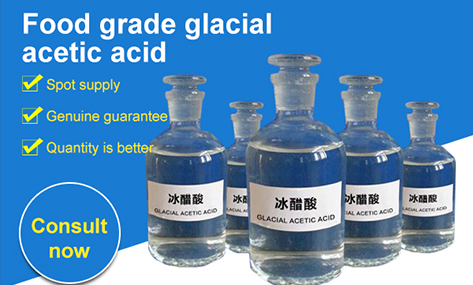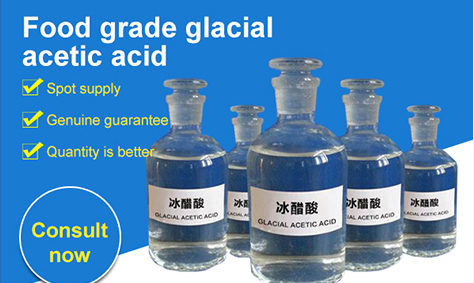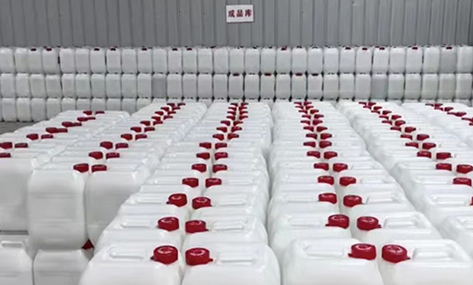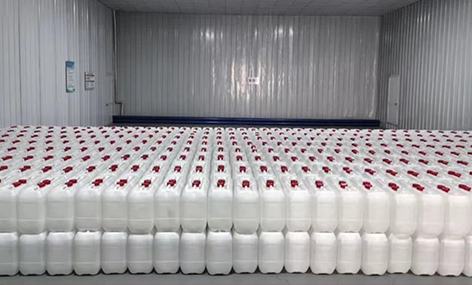
Авг . 14, 2025 02:20 Back to list
Glacial Acetic Acid for Sale: High Purity & Competitive Price
Navigating the Market for Glacial Acetic Acid
Glacial acetic acid, a foundational organic chemical, plays an indispensable role across a multitude of industries, ranging from pharmaceuticals and food processing to textiles and chemical synthesis. Its anhydrous nature and high purity make it a preferred choice for applications demanding stringent quality controls. As a leading glacial acetic acid for sale provider, we understand the critical need for reliable supply, consistent quality, and comprehensive technical support. This detailed guide explores the nuances of glacial acetic acid, its manufacturing intricacies, diverse applications, and key considerations for sourcing this vital compound.
Understanding the distinction between glacial acetic acid and ordinary acetic acid is crucial for industrial buyers. Glacial acetic acid refers to highly concentrated (typically 99.5% or higher) acetic acid, named for its ice-like appearance below 16.7°C (62.1°F). This high purity ensures minimal impurities, which is vital for sensitive applications. Unlike diluted forms, it poses specific handling requirements governed by standards such as glacial acetic acid NFPA guidelines, emphasizing safety and proper storage. Its robust demand reflects its versatility and essential function as a solvent, reagent, and precursor in numerous industrial processes, driving the continuous search for reliable glacial acetic acid suppliers.
The Advanced Manufacturing Process of Glacial Acetic Acid
The production of high-purity glacial acetic acid involves sophisticated chemical engineering processes designed to achieve the desired concentration and eliminate contaminants. The predominant industrial method is the carbonylation of methanol, often using the Monsanto process or the improved Cativa process. These processes involve the reaction of methanol (CH3OH) with carbon monoxide (CO) in the presence of a rhodium-based (Monsanto) or iridium-based (Cativa) catalyst, forming anhydrous acetic acid. This highly efficient synthesis pathway ensures a high yield and purity of the initial product. The meticulous control of reaction conditions, including temperature and pressure, is critical to optimize selectivity and minimize byproduct formation, distinguishing high-quality offerings of glacial acetic acid for sale.
Following the initial synthesis, extensive purification steps are critical to achieving the "glacial" designation. These steps typically include multi-stage distillation, rectification, and sometimes crystallization, to remove residual water, unreacted methanol, and other organic byproducts. The goal is to reach a concentration of 99.8% or higher, ensuring the product meets the stringent quality requirements for various applications, including food and pharmaceutical grades. Strict quality control protocols, often aligned with ISO 9001 and specific industry standards like those from the Food Chemicals Codex (FCC) for food grade variants, are applied at every stage of the manufacturing process to guarantee product integrity and consistency and meet the demands of global glacial acetic acid suppliers.

Image: Advanced facility for the production of glacial acetic acid.
Technical Specifications and Quality Parameters
For B2B buyers seeking glacial acetic acid for sale, understanding the precise technical specifications is paramount. These parameters dictate the suitability of the product for specific applications and ensure compliance with regulatory frameworks. Key specifications include purity, freezing point, water content, and levels of trace impurities. Our Food Grade Glacial Acetic Acid, for instance, adheres to the most rigorous standards, making it safe and effective for consumption-related uses, and confirming its suitability for sensitive industrial processes where even minute impurities can cause issues.
| Parameter | Specification (Food Grade Glacial Acetic Acid) | Test Method |
|---|---|---|
Purity (as CH3COOH) |
≥ 99.8% | Titration (GB/T 678-2002) |
| Freezing Point | ≥ 16.5°C | ASTM D1177 |
| Water Content | ≤ 0.2% | Karl Fischer Titration |
| Non-Volatile Matter | ≤ 10 mg/kg | Evaporation |
| Heavy Metals (as Pb) | ≤ 1 mg/kg | ICP-MS |
| Color (APHA) | ≤ 10 | ASTM D1209 |
Beyond these standard specifications, reputable glacial acetic acid suppliers also provide Certificates of Analysis (CoA) for each batch, detailing precise measurements and confirming adherence to specified standards. This transparency is crucial for industries where product consistency and compliance are non-negotiable, ensuring that the acquired glacial acetic acid for sale meets the exact requirements of the end application. Our commitment to these rigorous standards ensures the highest quality product for our clients.
Diverse Applications and Industry Impact
The versatility of glacial acetic acid allows it to permeate a vast array of industrial sectors. In the food and beverage industry, its food-grade variant is extensively used as an acidulant, preservative, and flavoring agent in products like pickles, sauces, and fermented foods. Its role in adjusting pH levels is critical for food safety and stability. For instance, in vinegar production, it is the primary active ingredient, contributing to its characteristic taste and preservative properties. The demand for high-purity Food grade glacial acetic acid is steadily rising due to increased consumer awareness of food quality and safety.
In the chemical industry, it serves as a crucial raw material for the production of vinyl acetate monomer (VAM), purified terephthalic acid (PTA), and various esters such as ethyl acetate and butyl acetate, which are widely used as solvents in paints, coatings, and adhesives. The pharmaceutical sector utilizes it in the synthesis of pharmaceuticals, vitamins, and antibiotics, often requiring the highest purity levels available for glacial acetic acid for sale. Furthermore, it finds applications in the textile industry for dyeing and printing, and in rubber and plastics for coagulation processes. Its corrosive properties, when concentrated, also make it effective in certain cleaning and etching processes in specialized industrial settings requiring precise chemical formulations.

Image: Glacial acetic acid plays a key role in food processing and preservation.
Market Trends and Pricing Dynamics of Glacial Acetic Acid
The global market for glacial acetic acid is influenced by a complex interplay of supply chain dynamics, raw material costs (primarily methanol and carbon monoxide), and demand from key end-use industries. Recent trends indicate a steady growth trajectory, driven by expanding applications in emerging economies and continued innovation in derivative products. However, fluctuations in crude oil prices and petrochemical feedstock costs can directly impact the glacial acetic acid price. For example, a 15% increase in methanol costs typically translates to a 5-7% increase in glacial acetic acid production costs, reflecting the tight correlation. Geopolitical events and environmental regulations also play a significant role, affecting production capacities and logistical challenges for glacial acetic acid suppliers.
For buyers, understanding these market forces is essential for strategic procurement. Long-term supply agreements and partnerships with reliable manufacturers can help mitigate price volatility and ensure consistent access to high-quality glacial acetic acid for sale. Moreover, the shift towards sustainable manufacturing practices and bio-based alternatives is an emerging trend that could influence future market dynamics and product offerings, potentially leading to new pricing structures. Industry reports often highlight regional disparities in pricing due to local production capabilities and import/export duties, making a comprehensive market analysis crucial for optimal sourcing decisions to secure competitive glacial acetic acid price.

Image: Global distribution and logistics for chemical products.
Choosing the Right Glacial Acetic Acid Supplier: A Strategic Approach
Selecting a suitable supplier for glacial acetic acid for sale is a critical decision that impacts product quality, supply chain reliability, and overall operational efficiency. Beyond competitive pricing, key factors to consider include the supplier's adherence to international quality standards (e.g., ISO 22000 for food safety, ISO 14001 for environmental management), their production capacity, logistical capabilities, and technical support. Reputable glacial acetic acid suppliers demonstrate transparency in their manufacturing processes and provide comprehensive documentation, including Safety Data Sheets (SDS) and Certificates of Analysis (CoA), to ensure safe handling and regulatory compliance for their anhydrous acetic acid products.
A comparison of potential suppliers should also weigh their ability to offer customized solutions, such as specific packaging sizes, purity levels for niche applications, or just-in-time delivery models. Longevity in the market and a strong track record of serving diverse industries are indicators of a supplier's experience and reliability. For instance, our extensive experience in supplying Food grade glacial acetic acid to global clients underscores our commitment to quality and customer satisfaction, reinforced by continuous investment in advanced production technologies and rigorous testing protocols. This holistic evaluation process ensures a partnership that supports your long-term business objectives and guarantees a consistent supply of quality glacial acetic acid for sale.

Image: Quality control and laboratory testing of chemical compounds.
Frequently Asked Questions (FAQ)
Q: What is the difference between glacial acetic acid and regular acetic acid?
A: Glacial acetic acid is essentially anhydrous acetic acid, meaning it is highly concentrated (typically 99.5% or higher) with very little water content. Regular acetic acid, such as household vinegar, is a diluted solution, typically 4-8% acetic acid in water. The "glacial" term refers to its ability to form ice-like crystals just below room temperature (16.7°C), which is a characteristic of its high purity, making it suitable for industrial applications where precise concentrations are required.
Q: What are the safety precautions for handling glacial acetic acid?
A: Due to its corrosive nature and high concentration, glacial acetic acid requires strict handling protocols. It can cause severe burns upon contact with skin and eyes, and its vapors can be irritating to the respiratory system. Always use appropriate Personal Protective Equipment (PPE), including chemical-resistant gloves, eye protection, and protective clothing. Refer to the product's Safety Data Sheet (SDS) and comply with glacial acetic acid NFPA guidelines for storage, ventilation, and emergency procedures to ensure worker safety.
Q: How does the glacial acetic acid price fluctuate?
A: The price of glacial acetic acid for sale is subject to various market dynamics. These include the cost of raw materials (methanol and carbon monoxide), global supply and demand balances, production capacities, energy costs, transportation expenses, and regional economic conditions. Geopolitical stability and environmental regulations can also influence pricing. Reputable glacial acetic acid suppliers provide transparent pricing models and can discuss factors affecting cost, offering insights into market trends.
Q: What is the typical delivery lead time for bulk orders?
A: Delivery lead times for bulk orders of glacial acetic acid for sale can vary based on quantity, destination, current stock levels, and logistical arrangements. Typically, for established clients, lead times range from 5 to 15 business days for domestic shipments and 20 to 45 days for international orders, factoring in customs and shipping schedules. We work closely with clients to provide accurate timelines and ensure efficient delivery, minimizing disruption to their operations.
Q: What kind of quality assurance and warranty do you offer?
A: We adhere to stringent quality control standards, including ISO 9001 and relevant industry-specific certifications like FCC for our Food grade glacial acetic acid. Each batch undergoes rigorous testing and comes with a Certificate of Analysis (CoA). Our products are guaranteed to meet the specified purity and technical parameters. We offer a warranty against manufacturing defects and provide robust customer support for any product-related inquiries or issues that may arise post-delivery, ensuring client satisfaction and product integrity throughout the supply chain.
References
- Jones, J. H. (2000). The Cativa Process for the Manufacture of Acetic Acid. Platinum Metals Review, 44(3), 94-105.
- National Fire Protection Association. (2021). NFPA 400: Hazardous Materials Code. Quincy, MA: NFPA.
- Food Chemicals Codex. (2020). Glacial Acetic Acid, Monograph. Rockville, MD: U.S. Pharmacopeial Convention.
- Syracuse Research Corporation. (2000). Toxicology Profile for Acetic Acid. Agency for Toxic Substances and Disease Registry.
-
Food Grade Glacial Acetic Acid - Hebei Yishan Spices | High Purity, Food Applications
NewsAug.14,2025
-
Glacial Acetic Acid for Sale: High Purity & Competitive Price
NewsAug.14,2025
-
Food-Grade Glacial Acetic Acid - Hebei Yishan Spices | Acidity Regulator & High Purity
NewsAug.13,2025
-
Food Grade Glacial Acetic Acid - Hebei Yishan Spices | Food Additive, High Purity
NewsAug.13,2025
-
Buy Glacial Acetic Acid for Sale | High Purity & Best Price
NewsAug.13,2025
-
Food-Grade Glacial Acetic Acid-Hebei Yishan Spices Co., Ltd.|Acidity Regulator&Flavor Enhancer
NewsAug.13,2025
